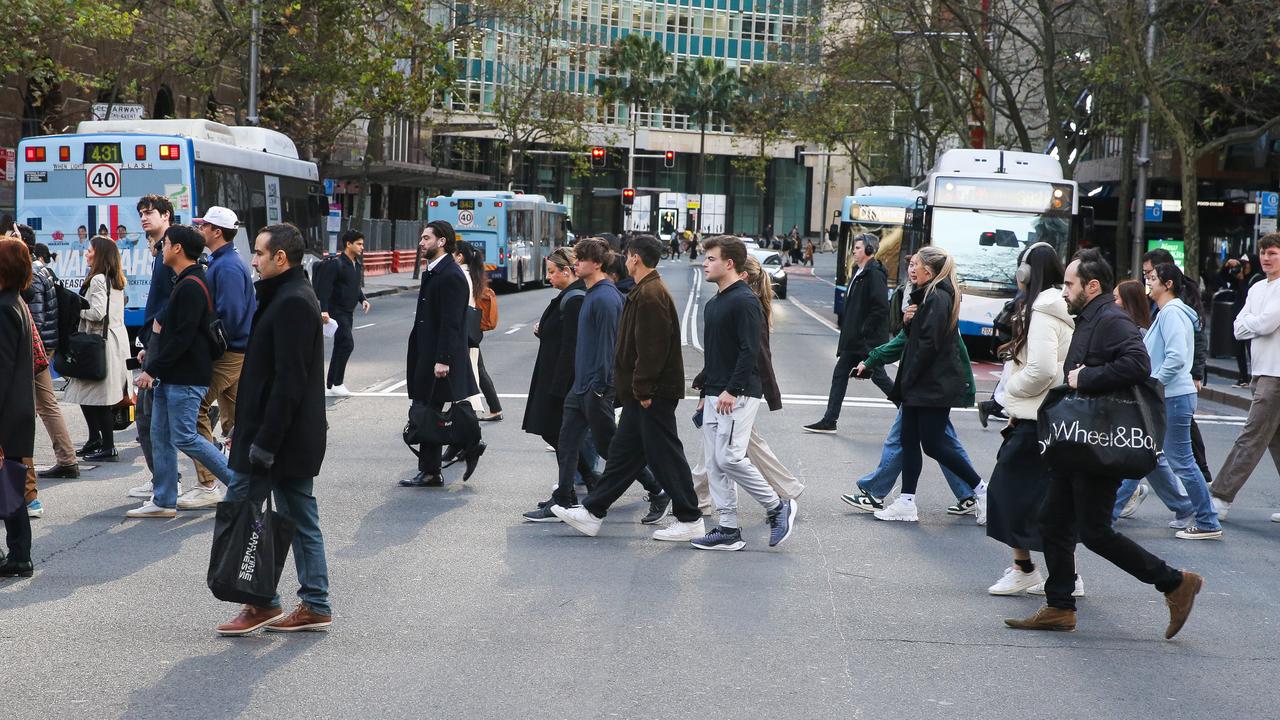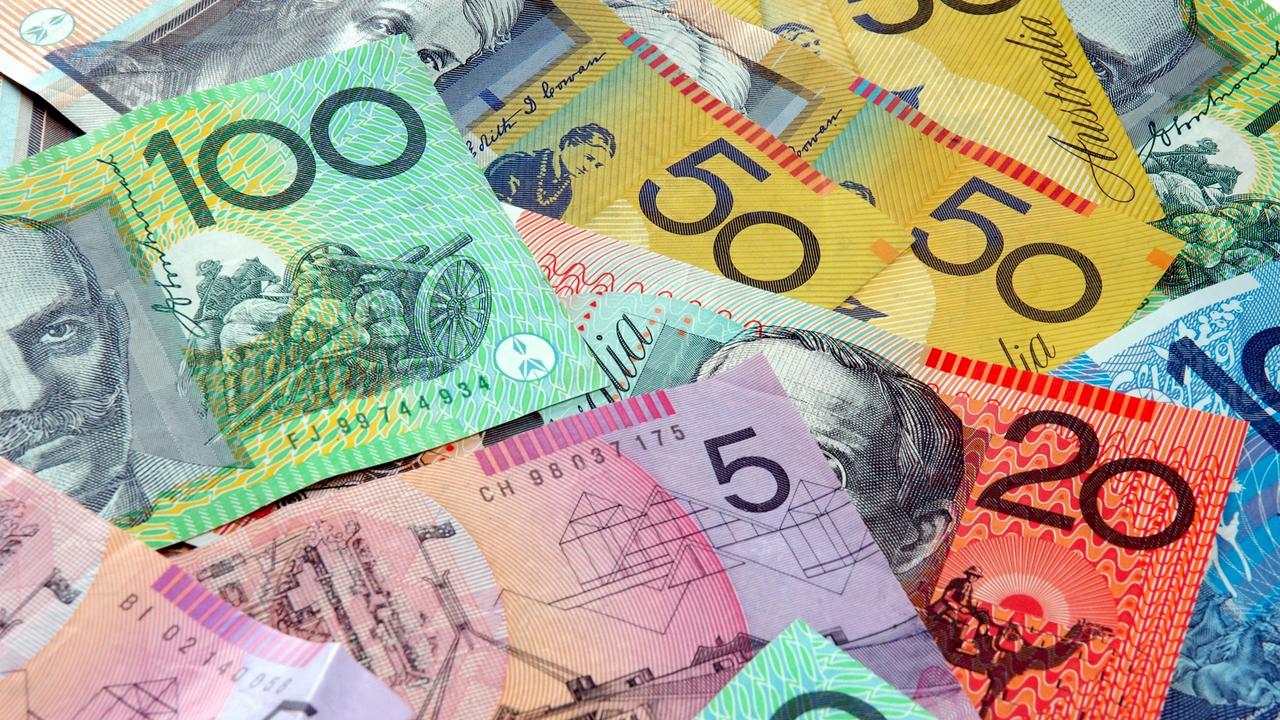China lashes Australia, calls it a ‘paper cat’ over Taiwan conflict
China has blamed Australia for prolonging the intense missile barrage in Taiwan, labelling it a “paper cat”.
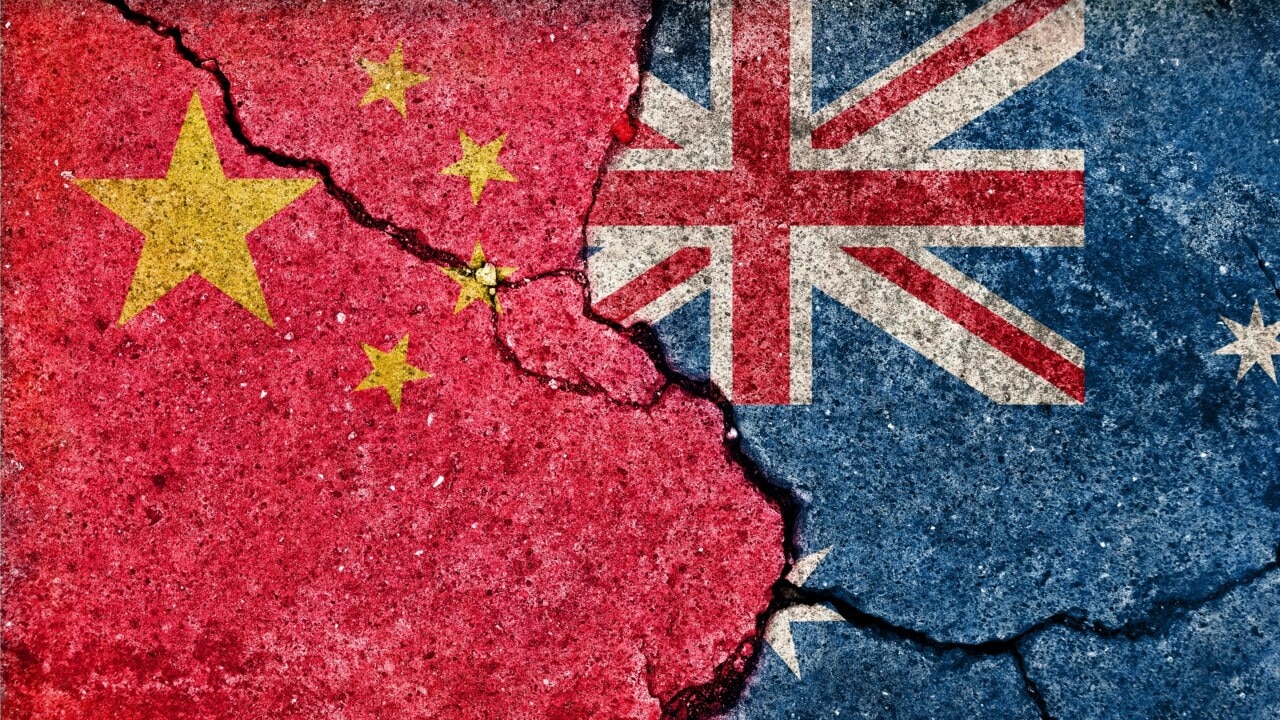
Leaders
Don't miss out on the headlines from Leaders. Followed categories will be added to My News.
A disgraced Chinese “wolf warrior” has lashed out against “paper cat” Australia, blaming its response to an intense missile barrage and blockade of Taiwan for prolonging the crisis.
“PLA’s military drills around Taiwan island were supposed to end on Sunday at noon, but were extended,” Communist Party columnist Hu Xijin said overnight.
“It’s a contempt toward joint warning of the US, Japan and Australia.”
The former editor-in-chief of the state-controlled Global Times fell from grace last year. Reports suggest he was disciplined over his hawkish editorial messaging after criticising Communist Party restraint.
PLA’s military drills around Taiwan island were supposed to end on Sunday at noon, but were extended. It’s a contempt toward joint warning of the US, Japan &Australia. To Chinese, regarding Taiwan question, these 3 countries are paper tiger, paper dog and paper cat in that order.
— Hu Xijin 胡锡进 (@HuXijin_GT) August 7, 2022
He’s hardly toned down his message in his new role as a celebrity columnist.
Before US House Speaker Nancy Pelosi visited Taiwan last week, Hu “advised” Beijing to send its combat aircraft over Taiwan and “escort” her diplomatic jet out of the area.
Now he’s resorting to an old favourite slander.
“To the Chinese regarding the Taiwan question, these three countries (the US, Japan and Australia) are a paper tiger, paper dog and paper cat – in that order.”
“Paper tiger” is a literal English translation of the traditional Chinese phrase zhǐlǎohǔ. It refers to something that appears threatening but has little substance to back it up, with a cat or kitten being even weaker.
Origami diplomacy
Chairman Xi Jinping last July called on his diplomats to project a more “loveable” image for China to make international friends.
He told senior Communist Party officials that he wanted China to have a “credible, loveable and respectable” international image.
“It is necessary to make friends, unite and win over the majority, and constantly expand the circle of friends [when it comes to] international public opinion,” he was quoted by Xinhua News Agency as saying.
Shortly after, Hu was stood down from his long-term role as Global Times editor-in-chief – but he’s continued to add his own personal twist to the Chairman’s words.
Stream more world news live & on demand with Flash. 25+ news channels in 1 place. New to Flash? Try 1 month free. Offer ends 31 October, 2022 >
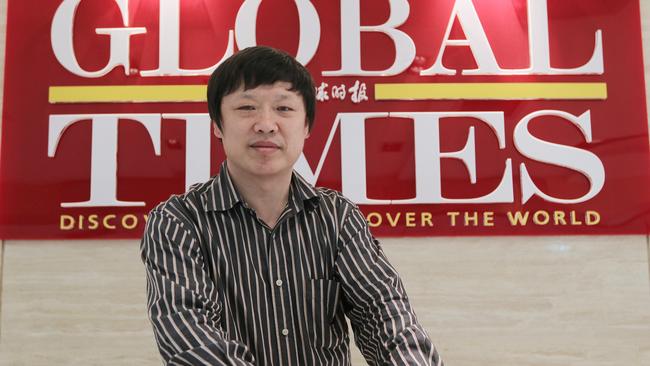
Indeed, the slur was previously used by Hu to describe Australia in a 2016 editorial in the Global Times.
“Australia is not even a ‘paper tiger,’ it’s only a ‘paper cat’ at best,” he wrote. “Australia has unexpectedly made itself a pioneer of hurting China’s interest with a fiercer attitude than countries directly involved in the South China Sea dispute. But this paper cat won’t last.”
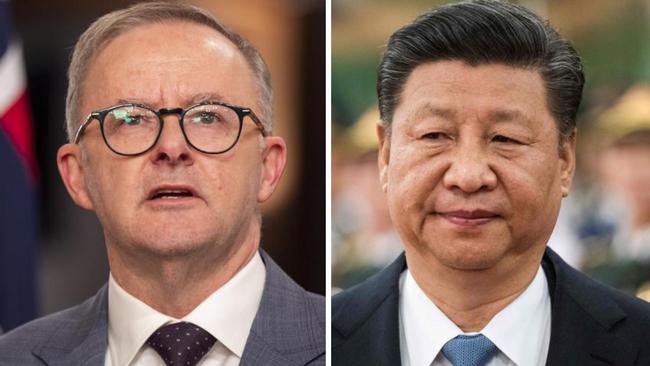
Last week, Hu wrote: “I believe that the Taiwan Straits will be the place where the US will finally show its true ‘paper tiger’ face. As for Taiwan authorities, they will show themselves as shivering ‘paper mice’.”
‘You are wrong’
China’s leadership has taken offence at the reaction of other countries to its hostility towards Taiwan.
China’s Foreign Ministry spokeswoman Hua Chunying was lauded by the Global Times overnight for posting “eight tweets in a row”.
The digital diplomatic barrage sought to rebuke claims that China had “overreacted” to Ms Pelosi’s visit.
“The US government, instead of preventing such a provocative visit in the first place, now has the face to describe China’s legitimate countermeasures as ‘overreacting’,” she stated.
“The Chinese people will never forget their national shame and will never allow those bandits to bully and plunder China again.”
The Chinese people will never forget their national shame and will never allow those bandits to bully and plunder China again. pic.twitter.com/oyH33gFUoB
— Hua Chunying åŽæ˜¥èŽ¹ (@SpokespersonCHN) August 7, 2022
Ms Hua “rebutted” claims of a disproportionate reaction: “You are wrong,” she said.
“The US should not pretend to be surprised about the Chinese response, as we have tried every means to warn of the consequences of Pelosi’s visit to Taiwan, including at the highest level.”
Meanwhile, senior research fellow at the China Institute of International Studies Yang Xiyu posted an editorial to the Global Times seeking to argue a joint US-Japan-Australia statement was, in fact, a sign of weakness.
“India, a key member of Quad, is absent from this statement. Internationally, after the US provoked tensions in the Taiwan Straits, most countries did not follow the US on this issue,” he wrote.
“This grouping, which was pieced together as a matter of expediency, faces a great deal of uncertainties in front of many sharp and sensitive international issues.”
He said the four nations only share interests in matters of “low sensitivity”.
“In major international issues that concern the core interests of major powers, the four can hardly speak in one tune and Japan, Australia and India can hardly act as the US demands.”
Verbal shots fired
At the weekend, Australia’s Foreign Minister Penny Wong joined her US and Japanese counterparts in criticising China’s barrage of military activity around Taiwan – and demanding their immediate cessation.
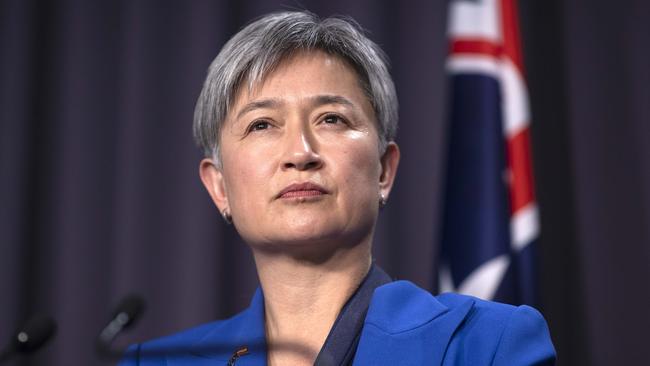
Beijing’s Australian Embassy immediately fired back.
“It is absolutely unacceptable for the finger-pointing on China’s justified actions to safeguard state sovereignty and territorial integrity,” a spokesperson for the Chinese embassy said in response. “We firmly oppose and sternly condemn this.
“Instead of expressing sympathy and support to the victim, the Australian side has condemned the victim along with the perpetrators. This is completely putting the cart before the horse and reversing the right from the wrong.”
Yesterday marked the third day of the PLA’s live-fire drills surrounding #Taiwan island. The drills focus on land attack and sea assault under systematic support. pic.twitter.com/t3PObVBu00
— Chinese Consulate General in Sydney (@ChinaConSydney) August 7, 2022
US Secretary of State Antony Blinken was accused of proving Washington’s complicity in Ms Pelosi’s visit by criticising the snap military exercises.
“The fact is [the] Speaker’s visit was peaceful. There is no justification for this extreme, disproportionate and escalatory military response,” he said.
China immediately shifted the blame back again.
“The finger pointing on China’s justified actions to safeguard state sovereignty and territorial integrity is absolutely unacceptable. China is the victim of political provocation from the US.”
But Climate Change and Energy Minister Chris Bowen yesterday backed the Foreign Minister’s message: “The action by China is disproportionate, and it’s destabilising – it’s over the top,” he told reporters.
Beijing – and Xu Xijin – are yet to detail what form the “extended” military drills will take.
Jamie Seidel is a freelance writer | @JamieSeidel
More Coverage
Originally published as China lashes Australia, calls it a ‘paper cat’ over Taiwan conflict




